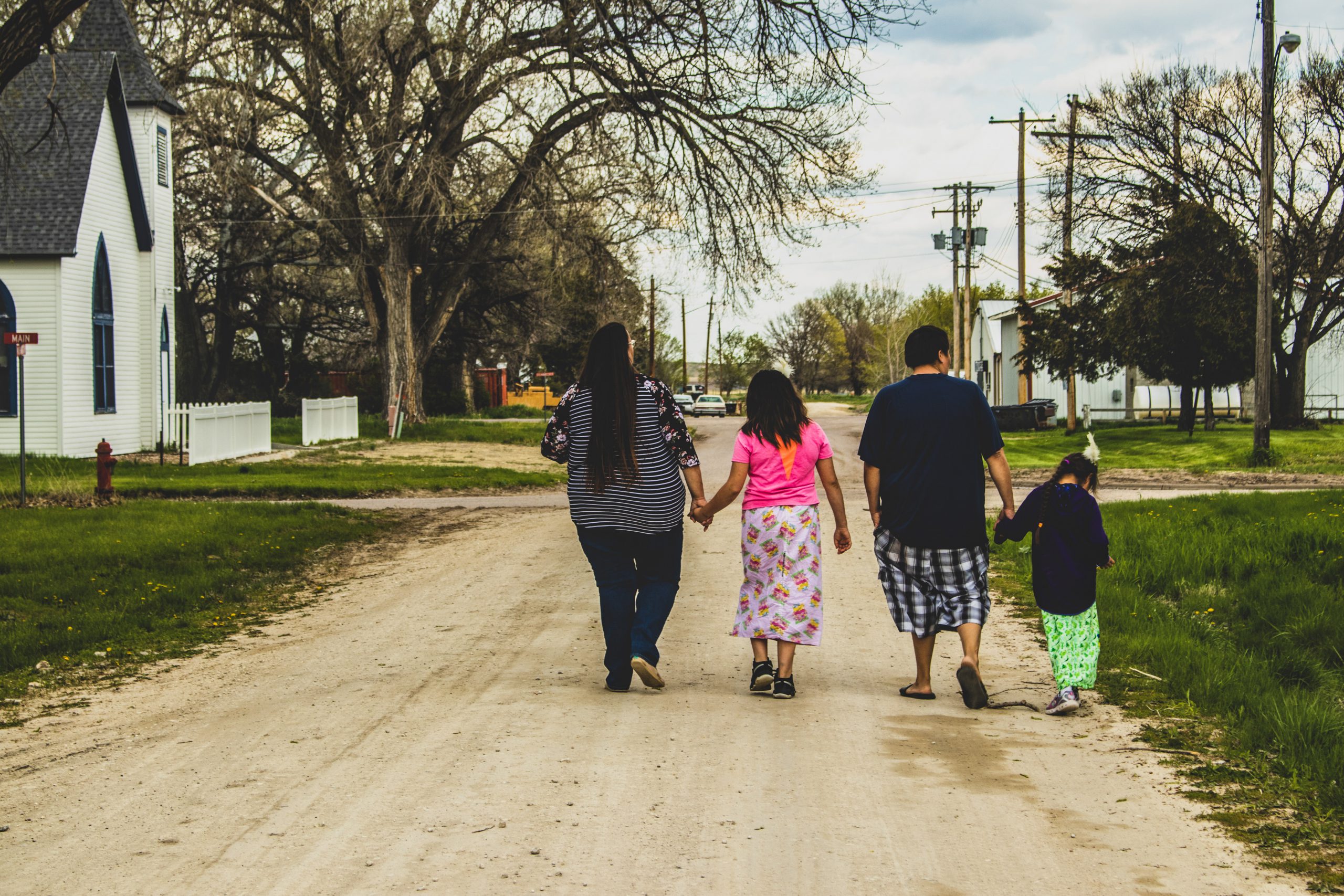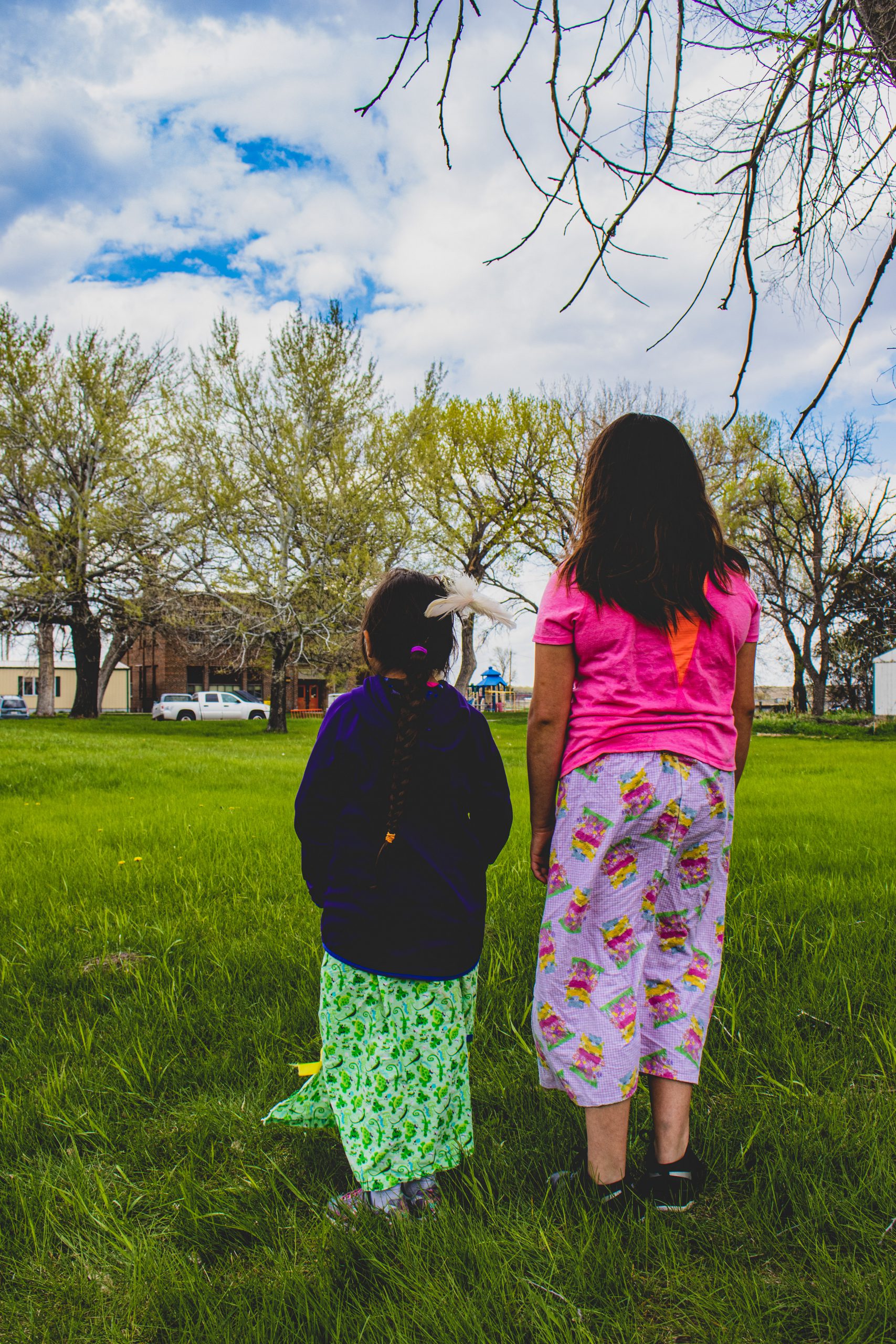Indianz.Com > News > Lakota couple sues school district for hair-cutting incidents

‘I was in shock when I heard her say that’
Lakota couple sues after secretary cuts daughters’ hair without permission
Monday, May 17, 2021
Indianz.Com
A Rosebud Lakota couple is suing a school in northern Nebraska after a secretary at the school allegedly cut their daughters’ hair without permission from the two Native mothers, according to a lawsuit filed Monday.
The ACLU of Nebraska filed the lawsuit on behalf of Alice Johnson and Norma LeRoy before the U.S. District Court for the District of Nebraska. The lawsuit alleges Marvanne Logterman, an elementary administrative assistant at Cody-Kilgore Unified Schools, cut the hair of the couple’s 6-year-old and 10-year-old daughters.
Logterman did so after allegedly finding lice in the girls’ hair.
The school is in Cody, Nebraska, just south of South Dakota’s Rosebud Reservation.
Johnson said she learned about the incident after school on March 2, 2020, when her 10-year-old daughter told her that Logterman had cut her hair at school.
“I was in shock when I heard her say that,” Johnson told Indianz.Com. “I had to get myself together.”
Complaint: Johnson v. Cody-Kilgore Unified School District [PDF]
alicejohnsonnormaleroyvcodykilgore
That night, Johnson called Lambert and reported the incident and demanded that the school stop cutting the girls’ hair, saying doing so violated their Lakota cultural beliefs. The next day, Lambert called her to say that he had spoken to Logterman, though he offered no details about the conversation.
According to the lawsuit, Lambert failed to direct Logterman to stop cutting the two girls’ hair between March 2, 2020, and March 4, 2020, when Johnson received a phone call from Logterman in which the secretary informed her that she had cut her 10-year-old daughter’s hair again after suspecting she had lice.
LeRoy inspected her 6-year-old daughter’s hair the same day and found two nearly bald patches.
“You could clearly see it when Norma was parting her hair,” Johnson said. “I could not figure out why she just didn’t pluck the one hair, just pull it out.”
Johnson called Lambert again to report the incident, but he claimed he didn’t know about the recent haircut.
On March 9, 2020, Johnson, LeRoy and Lakota elders attended the Cody-Kilgore School District’s Board of Education meeting. They asked the school to return the girls’ hair in order for them to be properly dispose of the hair according to their Lakota customs.
“For many Native Americans across various tribes, including the Lakota, hair is regarded as an extension of their physical being and can symbolize mourning,” the lawsuit states. “(The two girls) have been taught traditional Lakota beliefs and practices by Alice and Norma since they were very young. These teachings have included the belief that their hair should be kept long as a sacred symbol of their own life and cut only under specific circumstances such as after the death of a loved one.”


JUST FILED: Our newest civil rights lawsuit seeks accountability after a Nebraska school official cut the hair of two Lakota children without permission, violating their beliefs and their rights. https://t.co/RJYaLsLPTG
— ACLU of Nebraska (@ACLUofNE) May 17, 2021
Search
Filed Under
Tags
More Headlines
Native America Calling: No ordinary animal
Native America Calling: Safeguards on Artificial Intelligence
NAFOA: 5 Things You Need to Know this Week
Chuck Hoskin: Cherokee Nation takes the lead for our environment
Native America Calling: Earth Day assessment for Native peoples
Cronkite News: Gathering addresses ‘epidemic’ among Native people
VIDEO: Cody Desautel on tribes and federal forest management
AUDIO: Legislative Hearing on Discussion Draft of Forest Management Bill
Native America Calling: Remembering the 1974 Navajo border town murders
Native America Calling: Can the right approach close the Native immunization gap?
Cronkite News: Long COVID cases remain high in Arizona
Native America Calling: Eyes in the sky for development, public safety, and recreation
Native America Calling: Three new films offer diverse views of Native life
NAFOA: 5 Things You Need to Know this Week
Chuck Hoskin: Cherokee Nation works toward cure for arthritis
More Headlines
Native America Calling: Safeguards on Artificial Intelligence
NAFOA: 5 Things You Need to Know this Week
Chuck Hoskin: Cherokee Nation takes the lead for our environment
Native America Calling: Earth Day assessment for Native peoples
Cronkite News: Gathering addresses ‘epidemic’ among Native people
VIDEO: Cody Desautel on tribes and federal forest management
AUDIO: Legislative Hearing on Discussion Draft of Forest Management Bill
Native America Calling: Remembering the 1974 Navajo border town murders
Native America Calling: Can the right approach close the Native immunization gap?
Cronkite News: Long COVID cases remain high in Arizona
Native America Calling: Eyes in the sky for development, public safety, and recreation
Native America Calling: Three new films offer diverse views of Native life
NAFOA: 5 Things You Need to Know this Week
Chuck Hoskin: Cherokee Nation works toward cure for arthritis
More Headlines